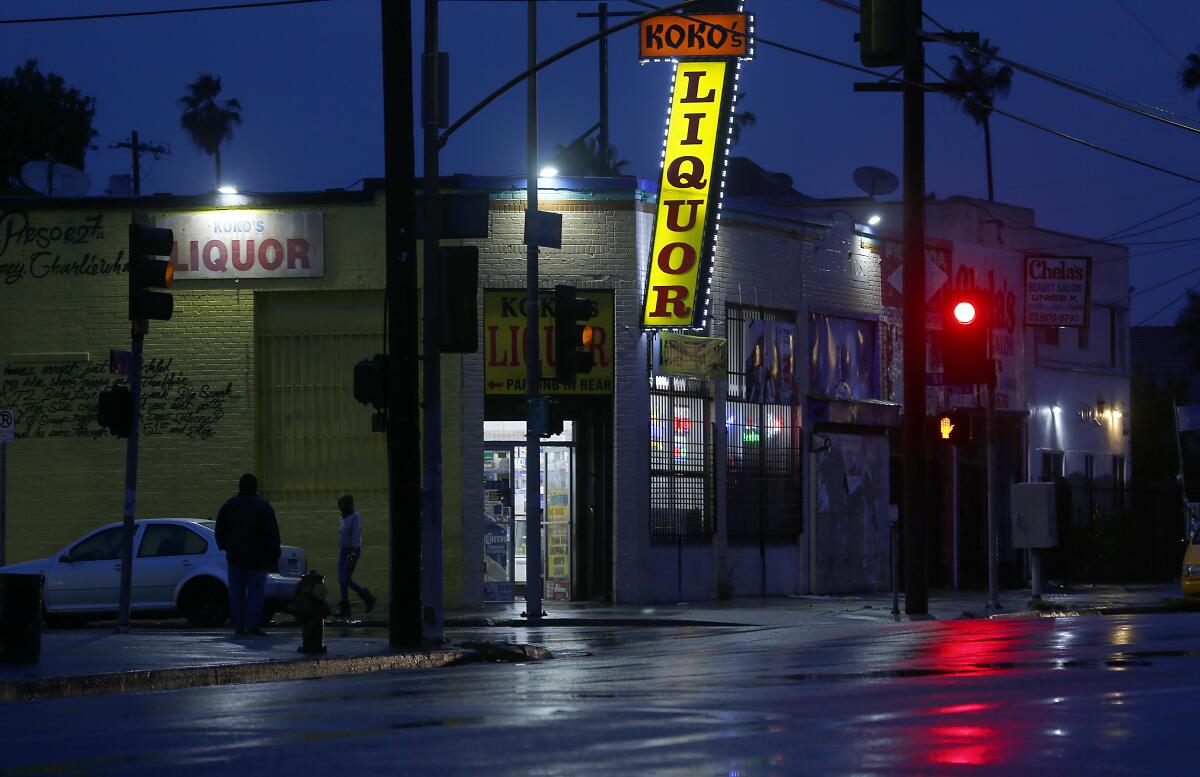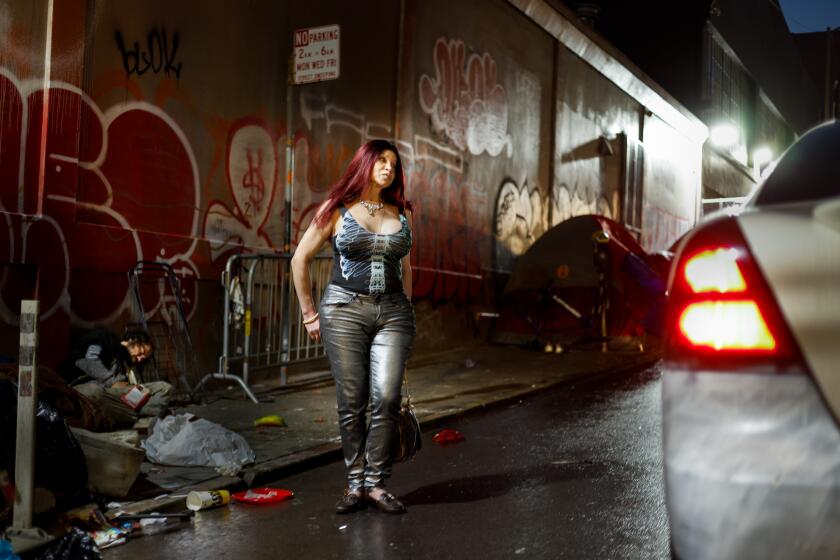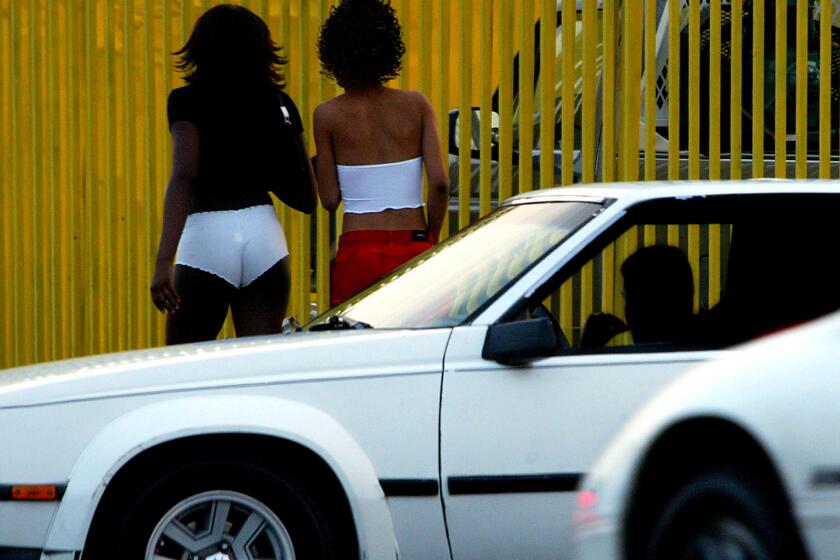California’s loitering law is discriminatory and makes everyone less safe

- Share via
Over the years, California has taken up the fight to replace laws that have enabled discrimination with ones that prioritize justice. We’ve done good work so far, including eliminating certain sentencing enhancements that extend prison time for questionable factors like gang-related allegations, and taking other steps to reduce racial discrimination in the legal process including jury selection. But many unjust laws are still on the books.
During my time at the Los Angeles Police Department, I was the first Black woman to be officer-in-charge of Newton Area Vice in South-Central. Over and over in this role, I encountered laws that are subject to broad interpretation, which can lead to biased enforcement. While there should be some room for discretion when enforcing vice infractions, too much latitude in an ill-thought-out law enables prejudice.
Sex workers say a loitering law that targets them for their hangouts and appearance is discriminatory, especially for transgender and Black people.
One outdated law in particular is often unfairly enforced: California’s statute criminalizing loitering for prostitution purposes, enacted in 1995 during the “tough-on-crime” era.
In September, state legislators passed SB 357 to repeal this loitering law. When the bill reaches Gov. Gavin Newsom, which is expected to happen soon, he should sign it immediately into law.
Provisions of the loitering law allow police officers to make arrests based on their suspicion that people may be sex workers or soliciting sex workers. But without any clear enforcement standards, officers form that suspicion with little more than guesswork and their own biases about the neighborhood or a person’s race, gender and attire. Arrests under this law can give people criminal records that affect their future employment and even housing, altering their lives forever.
In Los Angeles, data from a 2019 report show that Black residents have been hugely overrepresented in loitering-related sex work charges. Black adults constituted 56% of people charged with loitering for the purposes of prostitution, despite making up less than 9% of the city population and only 38% of all prostitution-related charges. Almost 70% of those charged under the loitering law were women. In Compton, women — cisgender and trans — were 100% of all arrestees for the charge, and 72% of those were Black. In comparison, other groups, including white, Latino and Asian people, have been charged at significantly lower rates.
The loitering law criminalization rate for the Black population in Los Angeles is also far higher than for other commonly charged misdemeanors, such as alcohol or drug-related crimes, where Black residents are similarly overrepresented at 24% of arrests.
The law does more harm than good. We need better ways to protect trafficked sex workers and to preserve the quality of life in neighborhoods plagued by prostitution.
The subjective enforcement enabled by the existing laws deters people — often survivors of crimes themselves — from speaking up about suspected sex trafficking, and prevents survivors of rape and assault from reporting these crimes. Despite frequently being victimized by physical and sexual violence, many sex workers don’t go to the police for fear that they would be arrested while reporting the offenses.
Although a 2019 law granted sex workers immunity from being arrested for their work when reporting a felony, their distrust toward law enforcement remains, and they still have to worry about being arrested on the loitering law.
SB 357 will allow law enforcement to do our jobs better by reducing that distrust. That’s why the bill is supported by the state’s largest anti-trafficking organization, the Coalition to Abolish Slavery and Trafficking, the LGBTQ civil rights organization Equality California and a nonprofit group I belong to, the Law Enforcement Action Partnership, which brings together police, judges, prosecutors and other criminal justice professionals in favor of reform.
The reality of the old-fashioned loitering law is that by targeting and harming some of our most vulnerable communities, it limits police officers’ ability to ensure public safety. Removing it will better protect people from sex trafficking and abuse, and so promote public safety.
Repealing the loitering law will also not change several state laws that criminalize sex work and soliciting sex work; those stay on the books. SB 357 is not about whether adults should be able to sell sex to another adult. What it does is put a stop to unjust, racist and transphobic harassment that makes our streets less safe.
Police officers are tasked with enforcing the law, not making it. That’s why it’s crucial that the legislature abolish bad laws that make it harder for officers to do their jobs. Newsom can uphold Californians’ commitment to safety and equality by signing SB 357.
Cheryl Dorsey served for 20 years with the Los Angeles Police Department and is now retired. She is a speaker for the Law Enforcement Action Partnership.
More to Read
A cure for the common opinion
Get thought-provoking perspectives with our weekly newsletter.
You may occasionally receive promotional content from the Los Angeles Times.











